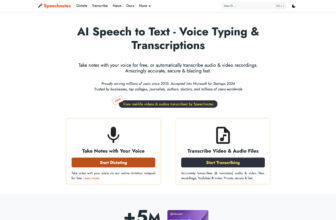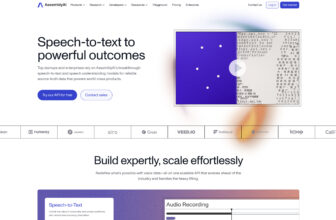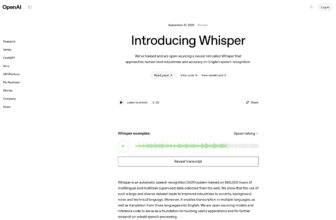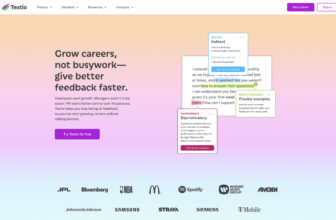Our Verdict
What is Deepgram
Deepgram is an AI-powered speech recognition company that specializes in automatic speech-to-text (STT) technology. Its end-to-end deep learning models are designed to deliver fast, accurate, and scalable audio-to-text conversion. Businesses use Deepgram for applications like customer support automation, call center analytics, meeting transcription, and video subtitling. With support for both real-time and batch processing, as well as customizable models tailored to specific industries, Deepgram provides flexible solutions for organizations that need reliable voice data processing at scale.
Is Deepgram worth registering and paying for
If your business or project relies heavily on accurate and scalable speech-to-text, Deepgram is definitely worth considering. It shines in scenarios like call center analytics, podcast transcription, real-time captions, or any workflow where speed and accuracy matter. Its customizable models make it especially useful for industries with unique terminology.
That said, for casual users or small projects, Deepgram may feel like overkill—both in setup and cost. Alternatives like Otter.ai or Fireflies might be easier for non-technical teams who also want built-in meeting summaries and collaboration tools.
Our experience
As a group working on projects that involve processing and analyzing audio data, we’ve been using Deepgram, and it’s been a powerful tool for turning speech into accurate, actionable text. Its AI-powered speech-to-text (STT) technology has delivered impressive results, streamlining our workflows and enabling us to tackle a range of applications with ease.
Getting started with Deepgram was straightforward. The platform’s API made integration into our existing systems quick, whether we were working on real-time transcription for live calls or batch processing for recorded meetings. The setup process was well-supported by clear documentation, allowing us to get up and running without much hassle. We used Deepgram for tasks like transcribing customer support calls, generating subtitles for videos, and analyzing meeting recordings for insights.
The speed and accuracy of Deepgram’s end-to-end deep learning models were standout features. Transcriptions were near-instantaneous, even for long audio files, and the accuracy was remarkable, even with varied accents, background noise, or industry-specific jargon. We tested it in scenarios like call center analytics and found it reliably captured nuanced conversations, which helped us extract meaningful data for improving customer interactions.
The ability to customize models for our specific needs was a game-changer. By training Deepgram’s models with our own datasets, we tailored it to recognize terms and phrases unique to our industry, boosting transcription precision. The support for both real-time and batch processing gave us flexibility, whether we needed live captions for a webinar or detailed transcripts for archived recordings.
The analytics features provided valuable insights, such as sentiment analysis and keyword extraction, which helped us better understand customer feedback or meeting outcomes. The platform’s scalability also meant it handled our growing volume of audio data without performance hiccups.
That said, there were minor challenges. The free tier is limited for testing, and full access requires a paid plan (pricing varies, typically starting at a few cents per audio hour), which added up for high-volume use. Some of us found the initial setup for custom models a bit complex, requiring developer expertise to optimize. Also, while the API is robust, support for less common languages was slightly less refined compared to major ones.
Overall, Deepgram has been like a reliable audio-to-text engine, transforming how we process voice data with speed and precision. It’s saved us time and unlocked new possibilities for automation and analytics. For businesses or teams needing scalable, accurate speech recognition, we highly recommend Deepgram.









